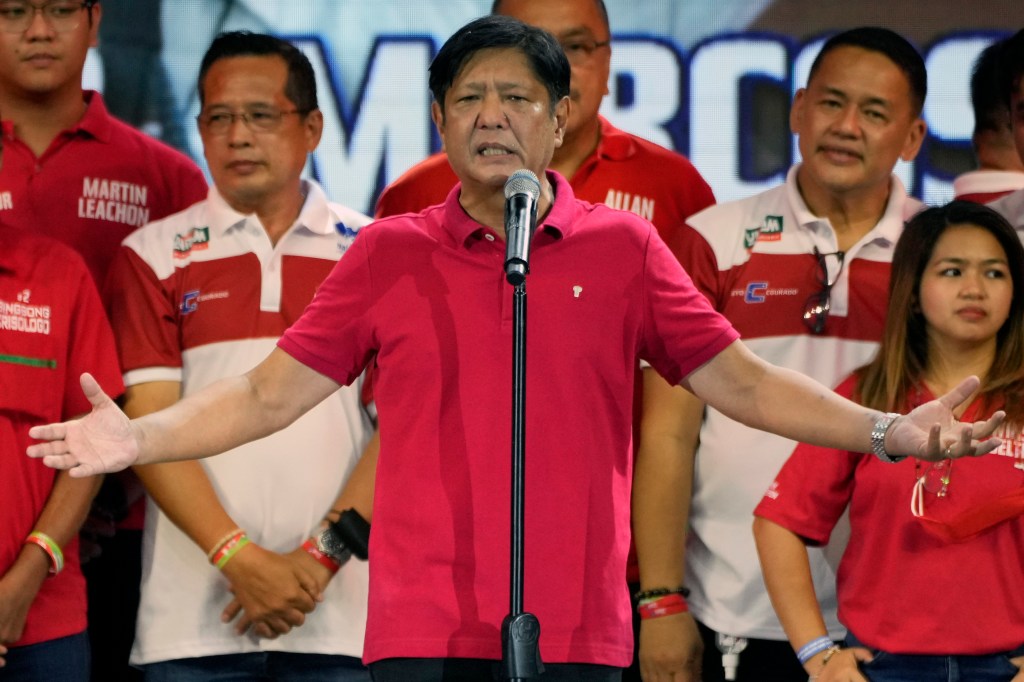SINGAPORE — President Rodrigo Duterte hasn’t been shy in attacking renowned journalist Maria Ressa and her website, Rappler. But it was still a startling escalation when government agents and lawyers from the National Bureau of Investigation (NBI) arrested her Wednesday on cyber libel charges that Amnesty International has called “brazenly trumped-up.”
The dubious nature of the charges weren’t lost on Reesa, who warned that Philippine law was being “weaponized” by the government to silence journalists and critics.
Videos by VICE
“My stay last night at the NBI really made me think what this is all about, and for me, it’s about two things: It’s abuse of power, and weaponization of the law,” Ressa, a 2018 Time Person of the Year, said Thursday after posting bail worth P100,000 ($1,900).
“Someone told our reporter last night, ‘Be silent or you’re next.’ I am appealing to you not to be silent, even if, and especially if, you’re next. You have to express outrage like I’m doing now,” Ressa said. “When I look back a decade from now, I wanna make sure that I’ve done all I can. We will not duck, we will not hide, we will hold the line.”
She said she was heading directly to the Rappler office to continue working.
As other media outlets in the country have fallen silent under mounting pressure from Duterte’s government, Ressa and Rappler have kept a critical eye on the president. Their unflinching coverage of his drug war has particularly drawn the ire of Duterte, who has regularly attacked the news outlet, calling it “fake news.”
Ressa’s arrest is the latest in a string of attacks against journalists in the Philippines. Duterte’s administration has filed eight cases against the organization, ranging from tax evasion to accusations of foreign ownership — which Rappler and press advocates have decried as politically motivated. The website’s presidential reporter has been banned from covering the president. Duterte has even endorsed killing “corrupt” journalists.
Yet even in that context, Ressa’s arrest was a marked escalation, human rights observers said, and could have a devastating impact on freedom of speech in the Philippines and the surrounding region at large.
“Stripped of its legal trappings and judicial clothing, this arrest over questionable charges that have been excavated are essentially undisguised attacks on press freedom and speech,” Edre Olalia, president of the National Union of Peoples’ Lawyers, a human rights network in the Philippines, told VICE News.
The arrest was especially troubling given the circumstances of the case.
At around 5 p.m. local time on Wednesday, at least four men in civilian clothing entered the Rappler office to arrest Ressa. Accompanied by her lawyers and colleagues, Ressa was taken to the NBI headquarters in Manila.
Libel is a bailable offense in the Philippines, yet Ressa was forced to stay in detention overnight after a night court — despite its jurisdiction to do so — refused her lawyers’ attempts to post bail.
The charges against Ressa are equally dubious. They relate to an article published in May 2012 about links between businessman Wilfredo Keng, who has alleged ties to human trafficking and drug smuggling rings, and former Chief Justice Renato Corona.
Five years later, in 2017, Keng filed a “cyber libel” complaint against Ressa, a researcher at Rappler, and six members of Rappler’s board. The NBI dismissed the case because the piece was written before the Cybercrime Prevention Act of 2012 went into force, in September 2012. But last month, the Department of Justice revived the charges based on the fact that the article was updated in February 2014 and thereby came under the law’s jurisdiction.
Duterte’s crackdown in the Philippines is part of a larger pattern in the region that has human rights monitors and activists alarmed. Journalists and activists in nearby countries like India, Cambodia, Thailand and Vietnam have been targeted aggressively by their governments, where crackdowns on freedom of speech and dissent have intensified in recent years.
Experts warn that unless there is a coordinated and sustained response to attacks by strongman leaders like Duterte, arrests like this will soon become the norm.
“The international community must act to protect courageous journalists like Ressa and hold the government of the Philippines accountable for its human rights obligations, before the Philippines’ poor press freedom record, and Duterte’s strongman approach spreads further through the region,” Rebecca Vincent, the UK bureau director for Reporters without Borders, told VICE News.
For her part, Ressa refuses to be silent.
“No amount of legal cases, black propaganda, and lies can silence Filipino journalists who continue to hold the line. These legal acrobatics show how far the government will go to silence journalists, including the pettiness of forcing me to spend the night in jail,” she said.
Disclosure: Before joining VICE, Natashya Gutierrez was a part of Rappler’s founding team, where she was an editor for 7 years.
Cover: Maria Ressa, center, the award-winning head of a Philippine online news site Rappler, talks to the media after posting bail at a Regional Trial Court following an overnight arrest by National Bureau of Investigation agents on a libel case Thursday, Feb. 14, 2019 in Manila, Philippines. Ressa was freed on bail Thursday after her arrest in a libel case. (AP Photo/Bullit Marquez)




